Therefore, to get more internet users to benefit from the solutions your business offers, you’ve to optimize your blog to match search engines demands. Remember, the quality and relevance of the content you share on your blog will determine your blog's ranking, conversion rates, and traffic flow.
What’s the Relationship Between Blogging and SEO?
Currently, over 1.74 billion active blogs and websites compete for the limited 2.2 million searches Google receives each day. Therefore, for your blog to get a share of the daily traffic Google receives, it must rank high, and its traffic flow should be excellent. Google checks on the relevance of your website’s ROI, traffic, and keyword searches to rank it.In other words, search engines check on whether your blog content is optimized for search engines before ranking it. In case your blog has quality content optimized for the search engines, you’re going to rank high and achieve better ROI. That’s precisely the relationship between SEO and blogging.
How Blogging Benefits SEO?
Your blog is like a 24/7 virtual customer representative. It’s the virtual image of your company. Hence, its relevance on the search engines is utterly essential. By optimizing your blog for SEO, you will attract a relevant and qualified audience to your blog. Read below and learn more ways on how blogging benefits SEO.
Let’s You Target Specific and Relevance Keywords
Blogging enables you to target specific keywords, which are more relevant to the products and services you provide. Unlike homepage's and landing pages where your entries are limited to particular keywords, blogging lets you create relevant, custom keywords to target the right audience without losing your business traction. You can modify prevalent keywords used by your competitors and create tailored content around such keywords to increase your SEO relevance and blog traffic. Moreover, with blogging, you’re able to use heavily targeted long-tail keywords, which rank fast. You can also choose popular keywords to create long-form content or content silos, increasing traffic and conversation rates.

Higher Level of Visibility
Blogs are great avenues for you to share relevant content and get a high ranking on targeted keywords. The more content your blog carries, the higher the likelihood Google will identify relevant keywords and content while crawling through your blog to rank it high. That presents your blog to a bigger audience, cultivating high traffic volumes and increasing conversions. As per studies, businesses that use blogs as a marketing tool often get approximately 55% more visitors than their competitors. Likewise, the study confirmed that companies with no blog miss a lot in the quality targeted audience.

Increases Your Brand Mentions
Brand mentions are one of the most powerful yet often neglected off-page SEO techniques. Brand mentions in genuine and safe places such as tweets and comments on social media sites can give Google a reason to position it higher on search engines. Without blogging, it’s virtually impossible to get relevant mentions in such places, meaning your audience reach will be limited, and your SEO success will be lower.
Higher Indexed Pages
Search engines rank websites based on their credibility and trustworthiness. They look for sites that are known for offering relevant and valuable information to web visitors. The easiest technique used by search engines to evaluate the credibility of a blog is by evaluating indexed pages. More indexed pages indicate that your blog commits to providing solutions and answers to customers' target questions and problems. Getting indexed pages on Google presents your company as an industry leader with good credibility, meaning when you get more meaningful and indexable pages, you’re going to attract the right audience.

Blogging Helps Reduce Bounce Rates
Blogs work immensely to boost user engagement by providing answers to multiple problems. Before starting a blog, you will need to know virtually everything about your target audience and the preferred content they often search for. By blogging while keeping your readers in mind, you’re able to boost the value and essence of your blog and brand. That means you’ll be attracting more and longer page sessions from your target audience. Longer page sessions mean lower bounce rates and better rankings on the search engines.Low bounce rates are an indication that you’re creating and publishing more quality content and your products, brand, and services are helpful to the target audience. The long-form content shared on most blogs keeps readers longer on the sites, reducing bounce rates. Blogging as an SEO booster works in many unique ways and its benefits are diverse. Listed above are some of the many benefits blogging has on SEO and the reasons you should venture into the blog.






















.png)



.svg)




